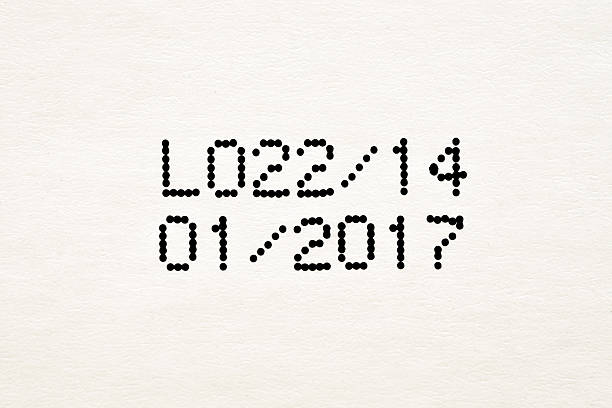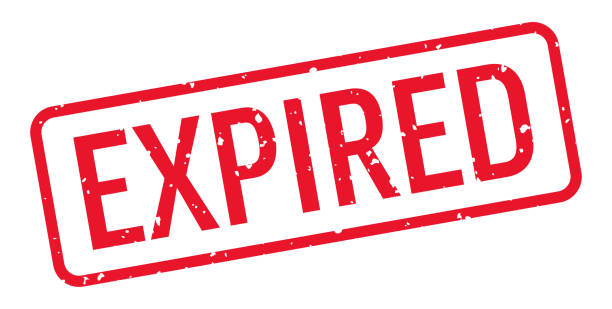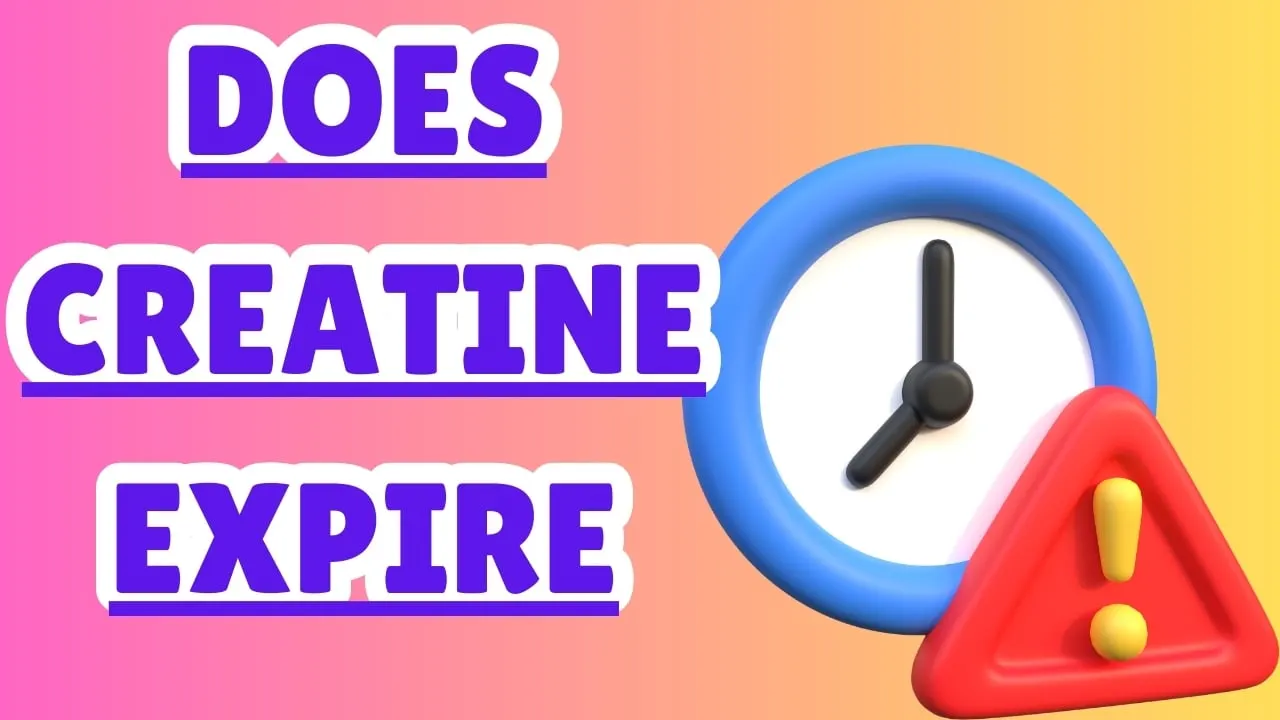Does Creatine Expire? Understanding Shelf Life and Safety Concerns
Does Creatine Expire? Uncovering the Shelf Life of Creatine Monohydrate
When you invest in supplements like creatine monohydrate, understanding its shelf life and whether it can expire is crucial.
This article delves into the nuances of creatine expiration, answering key questions about how long it lasts, how to store it properly, and whether taking expired creatine is safe.
Whether you're new to creatine supplementation or an experienced user, this guide will help you maximize the benefits of your creatine products and avoid potential risks.

Outline
- What Does "Creatine Expire" Really Mean?
- How Long Does Creatine Last Before It Expires?
- Understanding the Shelf Life of Creatine Monohydrate
- Can Expired Creatine Go Bad?
- Identifying Expired Creatine: Key Indicators
- The Effects of Taking Expired Creatine
- How to Properly Store Creatine to Extend Its Shelf Life
- Different Forms of Creatine and Their Stability
- What Happens When Creatine Has Gone Bad?
- FAQs About Creatine Expiration and Storage
1. What Does "Creatine Expire" Really Mean?
The term "creatine expire" refers to the point when the supplement's chemical integrity diminishes, potentially impacting its effectiveness.
While creatine monohydrate is very stable, it can degrade over time, especially when exposed to poor storage conditions like humidity or direct sunlight.
Understanding what "expire" means in the context of supplements helps you make informed decisions about your creatine use.
When creatine reaches its expiration date, it doesn't necessarily mean it becomes harmful, but its potency and benefits may decline.
For creatine supplements, maintaining stability often depends on proper storage and the specific form of creatine you use.

2. How Long Does Creatine Last Before It Expires?
So, how long does creatine last? Typically, the shelf life of creatine monohydrate is around two to three years from the manufacturing date.
However, factors like exposure to air, moisture, and heat can shorten this timeframe. Creatine supplements are often labeled with an expiration date, which provides a general guideline for their optimal use.
If stored correctly, creatine monohydrate may last beyond its expiration date without significant degradation.
The long shelf life of creatine is due to its stable molecular structure, which resists breakdown under normal conditions.
![]()
3. Understanding the Shelf Life of Creatine Monohydrate
The shelf life of creatine monohydrate depends on how it's stored and its packaging. A tightly sealed tub of creatine monohydrate powder kept in a cool, dry place can last longer than its expiration date suggests.
Creatine monohydrate is very stable compared to other forms like liquid creatine or creatine ethyl ester, which degrade more quickly.
Proper storage, such as keeping your creatine away from direct sunlight and moisture, is essential to preserve its quality.
This ensures your creatine supplementation remains effective for muscle-building and performance-enhancing benefits.

4. Can Expired Creatine Go Bad?
Does creatine expire in a way that makes it unsafe? Generally, creatine doesn't "go bad" in the traditional sense.
Instead, expired creatine may lose its potency, meaning it won't work as effectively. However, if the creatine has been contaminated by moisture or improperly stored, it could degrade into creatinine, a byproduct with no known benefits.
To determine if your creatine has gone bad, look for signs like clumping, discoloration, or an off-putting odor. While clumpy creatine could result from humidity rather than spoilage, it’s still a sign to check its quality before use.

5. Identifying Expired Creatine: Key Indicators
How can you tell if your creatine has expired?
Here are some signs to watch for:
- Clumpy Creatine: Indicates exposure to moisture. While it may still be safe to use, its efficacy could be compromised.
- Discoloration: Creatine should be white. Any change in color could indicate contamination or degradation.
- Foul Smell: A bad odor often signals that the creatine has degraded or been contaminated.
If any of these signs are present, it’s best to avoid using the product. Always store your creatine in a cool, dry place to prevent these issues.

6. The Effects of Taking Expired Creatine
What happens if you take creatine past its expiration date? Consuming expired creatine may not harm you directly, but it’s unlikely to deliver the full benefits of creatine supplementation.
Over time, creatine may degrade into creatinine, which lacks the performance-enhancing benefits of its parent compound.
However, research suggests that creatine is unlikely to pose significant health risks even after its expiration date. If you notice no adverse effects and the creatine appears normal, it may still be safe to use.

7. How to Properly Store Creatine to Extend Its Shelf Life
To ensure your creatine lasts as long as possible, follow these storage tips:
- Keep Your Creatine Away from Moisture: Store creatine in a cool, dry place to prevent clumping or contamination.
- Use Airtight Containers: A tightly sealed tub of creatine will help protect it from air and humidity.
- Avoid Direct Sunlight: Exposure to light can degrade the creatine molecule over time.
Proper storage not only extends the shelf life of your creatine but also ensures its effectiveness for longer periods.
8. Different Forms of Creatine and Their Stability
Not all creatine supplements are created equal when it comes to stability. Creatine monohydrate is the most stable and long-lasting form of creatine available.
On the other hand, liquid creatine and creatine ethyl ester degrade more quickly, making them less reliable for long-term use.
Other forms like buffered creatine and creatine hydrochloride may offer different stability profiles, but they often lack the extensive research supporting creatine monohydrate.
Always check the expiration date and store your creatine properly to maximize its shelf life.
9. What Happens When Creatine Has Gone Bad?
When creatine has gone bad, it typically means it has degraded into creatinine. This breakdown reduces its effectiveness and may cause the supplement to lose its muscle-building benefits.
Although creatinine is not harmful, it doesn’t provide the same advantages as fresh creatine.
To avoid this, ensure your creatine is stored properly and used within its recommended shelf life.
If your creatine has reached its expiration date but shows no signs of degradation, it may still be safe to take.

10. FAQs About Creatine Expiration and Storage
Does creatine actually expire?
Yes, but it often remains effective beyond its expiration date if stored correctly.
How long does creatine last?
Creatine monohydrate typically lasts 2–3 years when stored in a cool, dry place.
Can expired creatine be harmful?
Expired creatine is unlikely to be harmful but may lose its potency.
How should I store creatine?
It’s best to store creatine in a cool, dry environment, away from direct sunlight, and in an airtight container.
Key Takeaways
- Creatine monohydrate is very stable and has a long shelf life, often lasting 2–3 years if stored properly.
- Signs of expired creatine include clumping, discoloration, and foul odors.
- Proper storage—cool, dry, and away from direct sunlight—can extend the life of your creatine supplement.
- Taking expired creatine is generally not harmful but may reduce its effectiveness.
- Different forms of creatine have varying stability, with creatine monohydrate being the most reliable.
By understanding how creatine expires and how to store it effectively, you can make the most of your supplement and continue enjoying its benefits for muscle and performance enhancement.
For More Training Advice + Diet and Lifestyle visit us Combat Creatine
PS: Make sure you check out the rest of our Creatine Guides:
Creatine
Creatine Supplements Ultimate Guide
Creatine Supplementation Side Effects
Best Creatine Monohydrate Gummies Review: Top 10 Best Creatine Gummies












